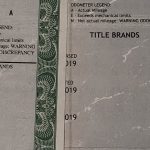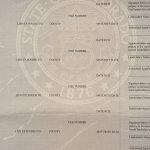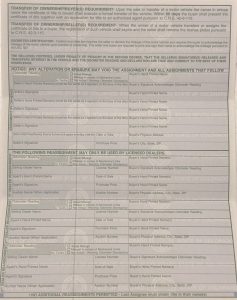Avoid title and insurance issues when you are purchasing a used car and save yourself hundreds of dollars and headaches as well.
Shopping for a new-to-you car?
Buying a car from an individual can save you hundreds and sometimes thousands of dollars. Dealers charge more since they have money tied up into reconditioning. The last time I bought a vehicle from a dealer was in 2000. Since then I’ve purchased at least one car a year and all but two of them from individuals. The other two were bought at auction, but that’s another story for another blog post. There are some things that can make that great deal into a headache though. I’ve dealt with a few different situations and I’m going to pass on the good and bad of them. You want to check out the vehicle and make sure that the engine is good and that it goes down the road smooth.
Background check… for your car!
Once you have determined that those things are good you might need to do a vehicle check on the Vehicle Identification Number (VIN). These vehicle checks will give you some information, but not always a full picture. They only will include those things that were reported. Not all shops report all repairs on all cars so the information can be spotty. Many of the small independent shops don’t report. Having a stack of receipts for repairs and possibly an auto journal will give a good picture of the maintenance. Maintenance records and receipts can replace the need for a vehicle check.
You’re done checking the mechanical condition of the vehicle and the test drive went well. You also have an understanding of maintenance, so the next step is to check on the title. This is where a lot of people just make a deal, hand over a check or a wad of cash and then ask for the title. Knowing the type and state of the title will help you avoid title and insurance issues when you go to register it.
A great question to ask the seller is if the title is a clean (non-branded) and clear (no liens) title in the sellers name.
Things you must check
Is the title a branded title?
A branded title can be a former Taxi, a salvage vehicle, a lemon, a flood/water/hail damaged vehicle, former police car, rebuilt from salvage or other brandings depending on the issuing state. Here’s an article about the different types of branding.
Will you be able to insurance this particular vehicle?
If there is a branding on the title you need to contact your insurance company and verify that they will insure the vehicle. If you will have a loan on this vehicle the bank or lending institution will require you to have full coverage. A rebuilt from salvage title may prevent you from getting full coverage.
Is there a lien on the title?
Normally this isn’t an issue as long as the seller pays off the vehicle and has the title sent to you. I would recommend meeting at the sellers bank where the lien is held and paying the bank directly so that there is no question about you getting the title.
Is it an out-of-state title?
You may want to contact your local DMV to know what needs to be done when registering an out-of-state vehicle. Some states require an inspection or VIN verification if the vehicle is coming from out of state.
Is the seller’s name on the title?
Double check that the name on the title is the person that is selling the vehicle. When they are different it increases your risk as a buyer. It is likely to cause headaches for you during registration.
Does the VIN on the title match the VIN on the vehicle?
You will want to verify that the VIN on the title matches the VIN on the vehicle. There are a couple of places that you can check that. If they don’t match walk away.
A few notes on Salvage title vehicles:
Salvage title branding. Most titles with a salvage branding on the title won’t be able to be registered to drive on public roads. A salvage branding is applied to vehicles that are in a condition that prevents them from being safe on public roads.
Depending on the state rules some vehicles can be rebuilt from salvage. Usually the rebuilder needs to provide paperwork on the original damage. Sometimes this includes pictures. Once it has been proven that the vehicle was rebuilt to a specific safety standard the owner can then apply for a Rebuilt from Salvage title. Check your states regulations if you want to buy one of these and rebuild it. As stated above, also check with your insurance company on insurability.
Is a Rebuilt vehicle good for you?
If the vehicle has a branded title this may limit the amount of insurance coverage you can obtain for it. Insurance may requirea full inspection on a rebuilt vehicle prior to granting collision or comprehensive coverage. When you have a loan it will require you to have full coverage (collision and comprehensive) insurance. If you’re paying cash for the vehicle and only require liability insurance a rebuilt vehicle might be the right thing for you.
One last thing to trip you up
Now that you’ve decided that the car is for you and that title is clean and clear there is one last thing. You must make sure that the seller signs the title to match their name on the front. If the typed name on the title is different from the signed name on the back this could spell trouble at the DMV. If the title reads Jonathan Smith but they sign it John Smith there will be trouble.
Conclusion:
Congratulations, now you can get that new-to-you car and save some money and avoid title and insurance issues with it.


